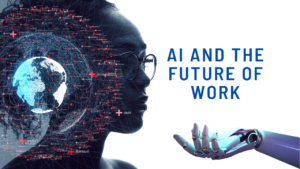Norway has recently taken bold strides towards the future of education. Released in the first quarter of 2023, the updated digitalisation strategy marks a significant turning point in Norway’s journey.
The new digital competence strategy responds to the challenges posed by digital homeschooling in 2020 and the disruptive emergence of ChatGPT in 2022. The strategy prioritizes the secure management of numerous student records across multiple systems, urging robust information security measures.
At the heartof the strategy lies the aspiration to promote inclusive, safe and seamless digital services that value individual creativity right from kindergarten. The strategy also places a strong emphasis on fostering digital skills across academic disciplines and forging robust collaboration with parents in primary and secondary schools. There is also considerable emphasis on tight collaboration between educational institutions and workplace environments. For this reason, flexible education, digital management, and cultivating a culture of digital education have been made a focal point for the next decade. By aligning education with industry demands, Norway aims to prepare learners for successful careers.
The government acknowledges the extent to which students are engrossed in digital platforms. To address this, the Norwegian Directorate for Education and Training has been tasked to find a comprehensive system to address potential changes in schools. Additionally, fostering dialogue between business entities, communities, parents and educational institutions has been made integral in shaping the structure and content of basic education programs.
While the strategy rightly emphasizes data security and individual creativity, there remains a significant lack in the education sector. The efficacy of technology in enhancing learning outcomes is yet to be established by research. However, obtaining the necessary funding for research to evaluate learning outcomes and the expertise to establish valuable collaborations is notreadily accessible.
As we navigate the path towards a future-focused education system, one question arises: How can we effectively control digitalisation in the education sector to prioritize the safety and well-being of our children in a constantly changing world?
At European Diplomats, our expertise lies in fostering meaningful collaborations between EdTech institutions, government offices, philanthropic organizations, and educational institutions. By facilitating discussions and negotiations, securing funding, and promoting the use of AI and learning innovation in early childhood education, we enable a transformative shift.


